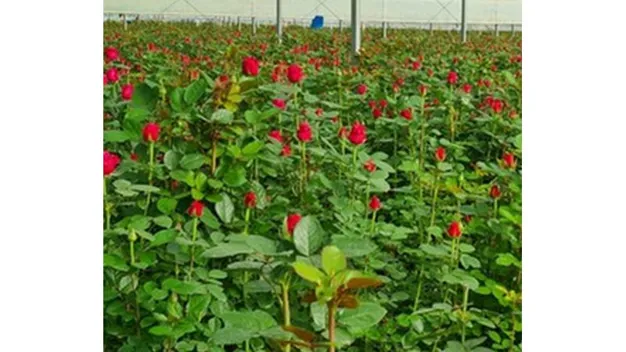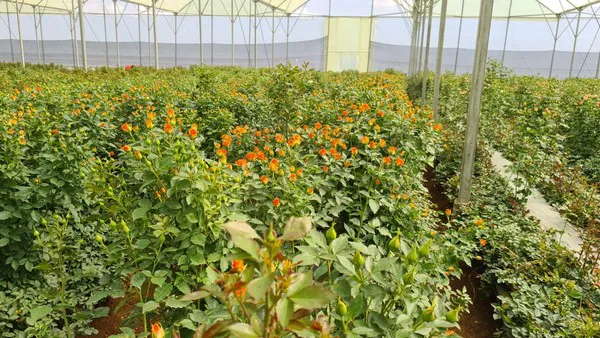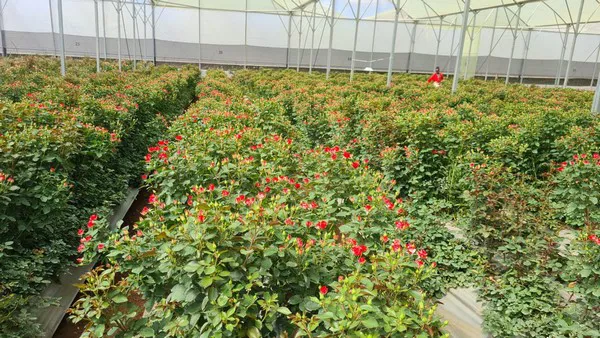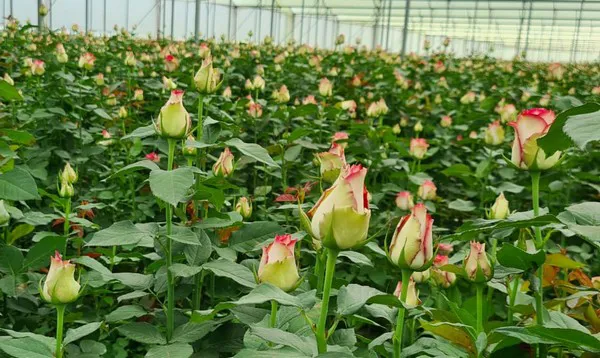“During the pandemic, the availability of premium roses was low, and the prices were high. That is when we introduced a new line of ‘super-intermediate’ roses that helped both wholesalers and us. Because of this new introduction, our demand increased and it helped establish our name in the international market,” says Shailesh Kumar Rai, Founder of Heritage Flowers, a rose farm in Kenya. The farm has been established only in 2019, and already it has had to deal with some major changes and challenges. Rai shares how they have been navigating these past years, how they are improving their business, and what the future of Kenyan floriculture will look like. 
Shailesh Kumar Rai
Super-intermediate roses to the rescue
According to Rai, Heritage Flowers went through a dire situation at the onset of the pandemic. “The farm was cut down on work force, and the cost of fertilizers and chemicals were increased. The availability of premium roses was quite low with the prices too high. In May-June 2020, the company got back on its feet and we sold around 70-75% to the auction market and 25% to the direct market.” While Heritage Flower’s target used to be the auction market, they have shifted to direct sales. “Through direct sales, there is more demand for high altitude flowers with large heads and long stems."
Therefore, Heritage decided to make a change and went for 100% direct selling with their ‘super-intermediate’ roses, with the help of the wholesalers who introduced the new line. “The wholesalers began making higher margins with the ‘super-intermediate’, and thus the demand for them grew. So far, this has helped establish the Heritage Flowers brand name in the international flower market. As a result, the pandemic was a blessing in disguise for us, as we got our name out there without having to advertise ourselves.”
“Everything is becoming more expensive”
Rai explains that, in these first years of business, one of the major challenges has been the increasing costs. “It seems like everything is getting more expensive by the day. The labor cost is increasing, and with the pandemic, all goods and inputs we import have gone up. The freight charges are the biggest expense as they can take up 60% of gross earnings, and then there is taxation; previously we were not charged 16% VAT on some chemicals and fertilizers, but now the policy has been revised and all these inputs are now taxed. This has a significant impact on our production cost, bearing in mind we are also struggling with the high cost of energy and many certifications from national to county government.”
The importance of investing in the workforce
Throughout all the challenges, it is important for Heritage Flowers to pay great attention to the welfare of their workers. “Our greatest investment is the workforce. The growth of this flower farm to its current status has been largely driven by our 220 dedicated workers, from the top management to those working in the greenhouses. We see each other as a family whose relationship is built on trust, respect, and a sense of togetherness. We have endeavored to create an open-door policy allowing our staff to come and discuss with us any issue they might want to be addressed. We put them first, which means we ensure they have what they need at the right time; it is one of the ways we want to appreciate them for their loyalty.”
The future of Kenyan floriculture
Rai shares that the current demand is promising a positive future for the flower industry in Kenya. “When the pandemic struck, most people in Europe began spending time at home. To refresh their minds, and homes, they began buying more flowers. Also, the young generation has started liking flowers and they are busy purchasing them. This gives us an exciting prospect for the future of our industry, and we are hopeful that the interest in our products will remain.”
For more information:
Heritage Flowers ltd
Shailesh Kumar Rai
Email: [email protected]
www.heritageflowers.biz
